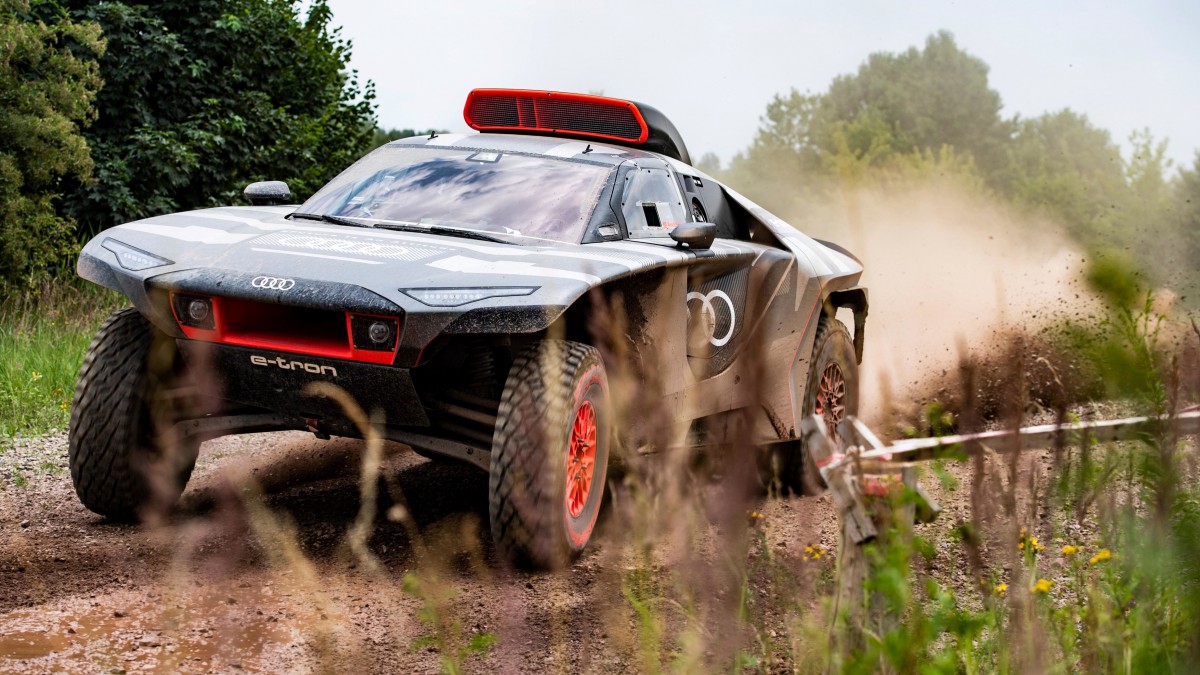

German luxury car manufacturer Audi has unveiled the details of its high-voltage battery found in the RS Q e-tron. The automaker has built the car to fulfil unknown requirements at the upcoming Dakar Rally and demands charging during off-roading. Via the centrally-located, high-voltage battery, the Audi RS Q e-tron showcases intelligent energy management with recuperation during braking. With the battery sporting an energy converter, the innovative Audi RS Q e-tron aims to beat the world’s toughest rally.
Prior to its participation in the Dakar Rally, Audi used the battery-electric drive technology in the Formula E World Championship. Since the Dakar Rally has multiple stages, Audi has ensured to test the battery tech for its adaptability. During the Rally, the cars will travel through hundreds of kilometres of sand which offers a great amount of driving resistance.
The cars will also have to deal with the high outside temperatures and adhere to the minimum weight regulations. For the Dakar Rally, Audi has ensured to rely on proven cell technology and defined the basic benchmark. With the development led by Axel Loffler, the engineering team has used a 52 kWh high-voltage battery. The RS Q e-tron has been tested for maximum expected requirements and weighs in at 370 Kg.
To tackle each stage after leaving the bivouac, the Audi RS Q e-tron starts up its highly complex control system. In combination with its high-voltage battery, the rally car features an innovative drive to challenge the difficulties of the terrain. Thanks to programmed algorithms, the Audi RS Q e-tron manages its State of Charge (SoC) to manage the distances. With its electric motors placed on the front and rear axles, the RS Q-tron produces 386 PS under regulations.
The Audi RS Q e-tron’s battery technology allows the car to recuperate energy for enhanced efficiency to tackle long distances. Audi derived this technology from their Le Mans sports cars and Formula E which also includes the MGU units. By converting mechanical energy into electrical energy while braking, the Audi RS Q e-tron can use the energy during acceleration.
Also Read: Ducati’s MotoE bike hits the track at Misano circuit